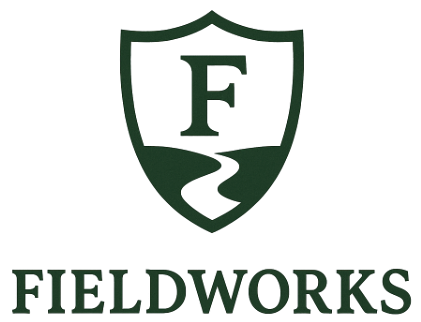Why Fieldworks Has a Minimum Price
One of the questions we hear often at Fieldworks is, “Why do you have a minimum price?”
We’re proud to offer simple, flat-rate pricing: $2,000 per acre for clearing light brush, $4,000 per acre for wooded land, and so on (https://www.fieldworksusa.com/pricing). Customers like the clarity: they can look at their property size, multiply by the rate, and know what to expect. But the truth is, no matter how clean and simple our pricing model is, there’s always a baseline cost to delivering professional land work. That’s why every one of our services has a minimum price.
To make this real, let me share an example from this week. We’re clearing a small lot with large trees in Petersburg, Tennessee, about two hours from our office in Chattanooga. The site is only 0.3 acres. If you run the math at $4,000 per acre for wooded land, you’d expect a price of around $1,200. But our actual quote came in at $2,000, because that’s our minimum for wooded lots.
Here’s why:
Even on a tiny parcel, we can’t shrink the costs of mobilization. Getting a skid steer, mulching head, and hauling truck to Petersburg is a four-hour round trip. That’s fuel, wear and tear, and a day of operator time just to travel and set up. Then there’s the equipment itself. Running a mulching head capable of handling timber isn’t cheap, it burns through $80–$100 of diesel per hour, and operators run $350–$400 per day at minimum. Add in hauling debris and you’re looking at hard costs that easily run $1,200–$1,500 before we even touch the trees.
Now imagine trying to do all that for $1,200 total revenue. We’d be in the red before the chainsaws fired up. The $2,000 minimum ensures that when we send a crew two hours down the road, they have the equipment and time to do the job right without anyone cutting corners. It also means every customer, big or small, gets the same professional standard.
Think of it this way: a one-acre wooded lot and a ten-acre wooded lot both require the same truck, the same skid steer, the same mobilization. On the bigger job, those costs spread out more efficiently. On the smaller one, they don’t. The minimum price is our way of balancing that out—keeping our flat-rate model fair, sustainable, and simple to understand.
We know some folks wonder if a minimum is just about padding numbers. For us, it’s the opposite. It’s about protecting customers from “surprise add-ons” later. Instead of nickel-and-diming with travel surcharges or hourly labor fees, we build it all into one clear number. When you see $2,000 as the minimum, you know it covers everything from hauling equipment two hours away to fueling the machines that can take down mature timber.
At the end of the day, our prices aren’t a barrier, they’re a promise. They promise that whether you call us for a half-acre or a hundred acres, we’ll show up with the right crew, the right equipment, and the same level of care. Petersburg is a perfect example: even for a 0.3-acre lot, our customer can trust that the work will be done safely, professionally, and on time.
That’s what keeps our pricing simple and our service reliable.
